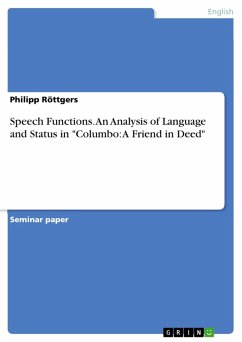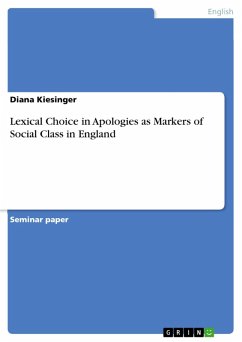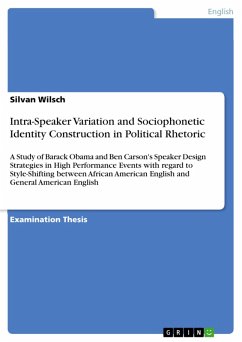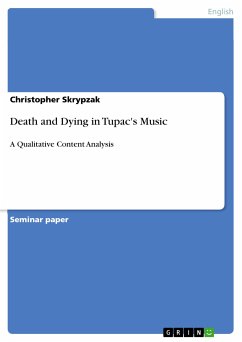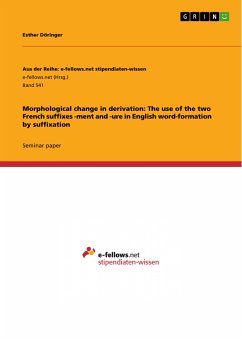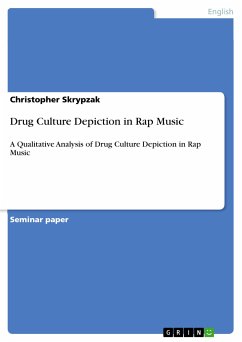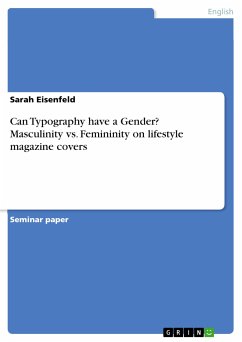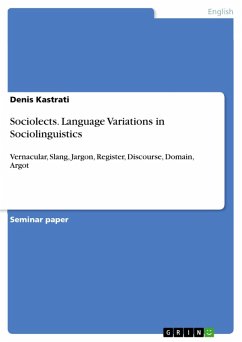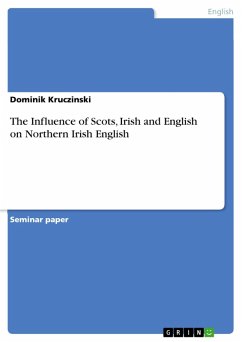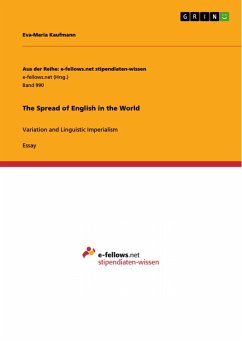
The Spread of English in the World (eBook, PDF)
Variation and Linguistic Imperialism
Versandkostenfrei!
Sofort per Download lieferbar
13,99 €
inkl. MwSt.
Weitere Ausgaben:

PAYBACK Punkte
0 °P sammeln!
Essay from the year 2011 in the subject English Language and Literature Studies - Linguistics, grade: Distinction, University of Newcastle upon Tyne (EDUCATION COMMUNICATIONS AND LANGUAGE SCIENCES), course: Sociolinguistics, language: English, abstract: The massive increase of English speakers around the world who speak it at all different levels of proficiency, for any variety of purposes and with (other) non-native speakers has sparked some concerns and controversies. Some are concerned that its wide spread and the emergence and institutionalisation of new 'Englishes' will lead to a language...
Essay from the year 2011 in the subject English Language and Literature Studies - Linguistics, grade: Distinction, University of Newcastle upon Tyne (EDUCATION COMMUNICATIONS AND LANGUAGE SCIENCES), course: Sociolinguistics, language: English, abstract: The massive increase of English speakers around the world who speak it at all different levels of proficiency, for any variety of purposes and with (other) non-native speakers has sparked some concerns and controversies. Some are concerned that its wide spread and the emergence and institutionalisation of new 'Englishes' will lead to a language fragmentation that could ultimately result in mutual unintelligibility. The question of who holds authority over English today is causing heated discussions. Teaching practices for English as a foreign language are yet another contentious subject. For the most part, English teaching is still oriented towards British or North American varieties, and a learner's proficiency is measured in relation to those norms. Some, however, demand that English teaching practices take into account that usage situations and requirements for English have changed, and that teachers prepare students for international communication rather than communication with Americans or British. The issue with perhaps the greatest political significance is that of linguistic imperialism. As English, particularly the 'prestige varieties' British and American, are being taught to more and more people across the world, some have voiced their concern that this "compromises the cultural integrity of the non-native speaker". There is a fear that English might suppress or even replace local languages and be used as a tool to spread Anglo-American cultural hegemony. This essay gives first a rough overview over who speaks English in the world today. It then briefly discusses some of the attempts by scholars to categorise this immense number of ddifferent people, focusing particularly on Kachru's model of the spread of English. It addresses some of the factors that lead to the emergence of new varieties of English, describing Nigerian English and China English in more detail by way of an example. Linguistic imperialism is discussed subsequently as one particularly controversial issue relating to the rise of English to one of the world's most predominant languages.
Dieser Download kann aus rechtlichen Gründen nur mit Rechnungsadresse in A, B, BG, CY, CZ, D, DK, EW, E, FIN, F, GR, HR, H, IRL, I, LT, L, LR, M, NL, PL, P, R, S, SLO, SK ausgeliefert werden.




